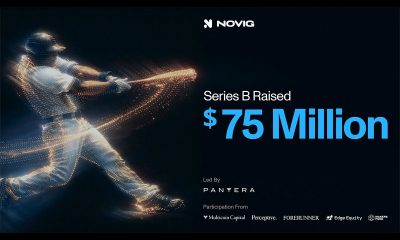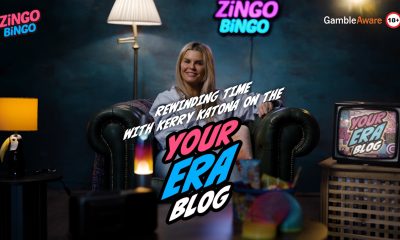Industry News
European Gaming Q3 Meetup Part I: Mastering the Player Lifecycle
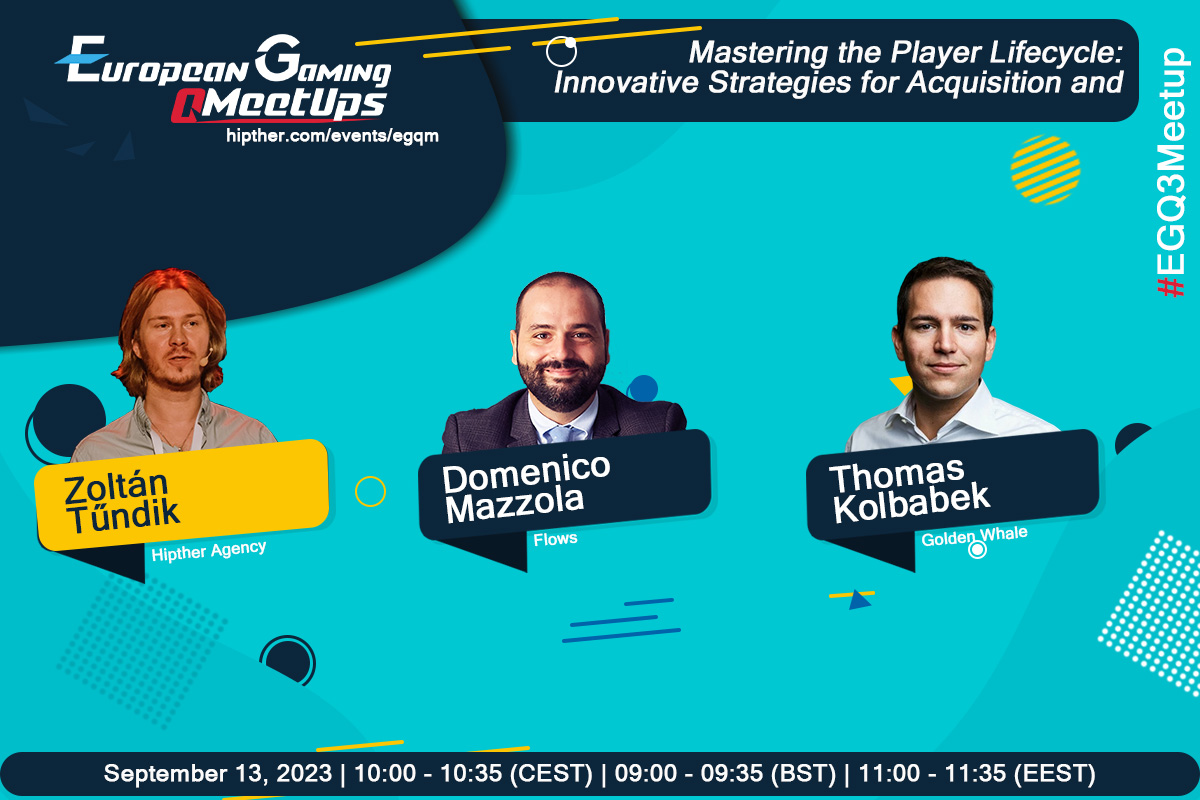
The European Gaming Q3 Virtual Meetup that took place on 13 September had it all: from Commercial Marketing and the Player Lifecycle, to Employer Marketing, Talent Acquisition and Retention, industry experts from the European iGaming scene provided insights in two informative and honest panels that no professional should miss! Read on and find the link to the Livestream recordings to watch the EGQ3 Meetup on YouTube!
The European Gaming Meetups by Hipther Agency are designed to keep you up-to-date with what is fresh in the European gambling industry.
The meetups feature several panel discussions per region and topics that are joined by key industry experts, CEOs, C-Level Executives, Business Development Managers, and sometimes government officials/regulators.
The European Gaming Q3 Virtual Meetup featured two thought-provoking panels: “Mastering the Player Lifecycle” and “The Importance of Company Culture in iGaming”.
Panel 1: “Mastering the Player Lifecycle”
Speakers: Domenico Mazzola, Sales Director at Flows | Thomas Kolbabek, CTO at Golden Whale Productions
Moderated by: Zoltan Tundik, Co-founder and Head of Business at Hipther
Watch the Panel Discussion on YouTube and HiptherTV!
The panelists kicked off the discussion by delving into the fundamentals of mastering the player lifecycle. Domenico Mazzola emphasized the importance of Marketing Campaigns Automation, highlighting the need for real-time data to inform successful marketing strategies. He stressed the significance of A/B testing and underscored the competitive landscape, where companies vie for players’ attention amidst constant distractions from platforms like Netflix and social media. Therefore, data should be harnessed for precise player profiling and segmentation, enabling customized promotional strategies.
Domenico furthered his analysis by pointing out that while leveraging data is ideal, many corporations lack the necessary focus. Startups often cut corners and prioritize rapid acquisitions, while established organizations move slowly, missing out on technological innovations.
Thomas Kolbabek concurred with the data-driven approach and stressed the importance of data collection for effective segmentation, allowing for personalized customer targeting and messaging. He advocated for engaging all players, not just VIPs, to achieve higher retention rates. Real-time data, according to him, is crucial for tracking player activity and tailoring the player experience, incentives, and messaging accordingly.
The panelists also explored psychological triggers and personalized experiences. Thomas discussed player types, their preferences, and the need to identify the reasons behind their behavior for a successful retention strategy. He distinguished between immersive players who appreciate gaming details, such as animations, and money-oriented players who focus on gameplay and winnings. With recorded gameplay data and identified psychological triggers, online casino companies can personalize the player experience by adjusting gaming details and messaging.
Domenico took personalization a step further, emphasizing the importance of creating original, personalized content and offers. He concurred with Thomas on the necessity of having the right system and tools in place for real-time data collection. He acknowledged that many companies face challenges in this area, often stuck with legacy systems that are difficult to update. He stressed the need for companies to recognize the importance of appropriate data tools for the success of acquisition and retention strategies.

Regarding case studies of successful retention strategies, both guests refrained from providing specific examples due to privacy concerns. However, Thomas shared a successful “formula”: running test campaigns for incentives, bonuses, and customized messaging, leading to the development of automated machine learning models, resulting in a 75% uplift in retention and a 25% uplift in player activity.
Domenico shared that his experience with B2B and B2C companies has shown that focusing on specific KPIs can significantly accelerate the development cycle, reducing it from months to days.
Both speakers agreed on the value of AI and technological advancements, particularly in graphics resources and highly customized messaging.
In conclusion, Thomas summarized the process of building a successful retention strategy, emphasizing the importance of identifying specific problems, gathering data, and hypothesizing to create machine learning models under a top-down KPI-based approach. Domenico reiterated that data and automation are imperative for retention strategy development, stressing the importance of investing in the right tools for the retention process.
Read more about the second part of this exciting and informative edition of the European Quarterly Meetups, a panel discussion on Company Culture in iGaming!
Industry News
Novig Raises $75M Series B to Build a Trader-First Sports Prediction Market
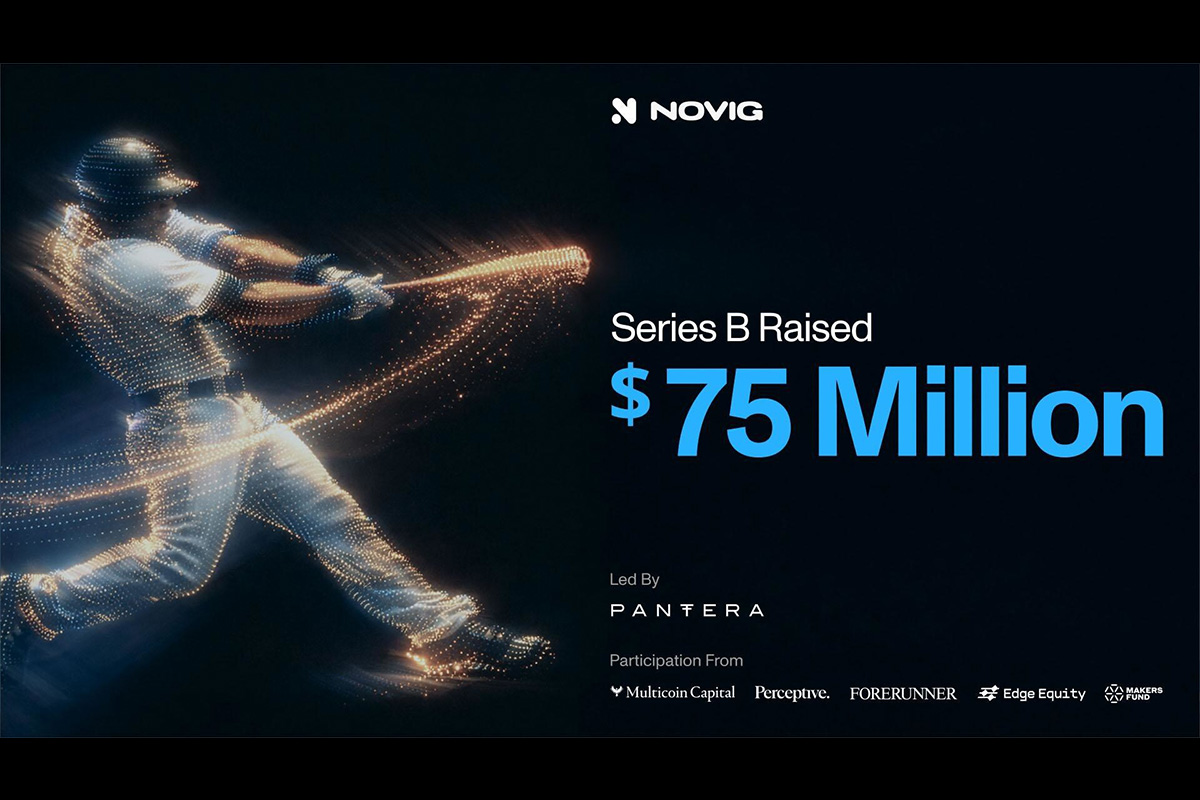
Novig, the fastest growing sports trading platform in America, announced the close of a $75 million Series B round led by Pantera Capital, with participation from Multicoin Capital, Makers Fund, Edge Equity, and existing investors Forerunner, Perceptive Ventures, and NFX. The round brings Novig’s total capital raised to more than $105 million.
The funding follows a period of growth for the platform, which reported a 10x increase in trading volume during 2025. Novig’s annualized trading volume currently exceeds $4 billion.
Although sports account for the majority of activity on most prediction market platforms, those products are not built with sports traders in mind. Novig, by contrast, is built for sports fans, delivering a fair, transparent, and commission-free trading experience.
Since launch, the platform has rapidly emerged as the leading sports trading platform in the US, proving strong demand for a trader-first alternative to traditional sportsbooks. Novig has officially submitted its application to the Commodity Futures Trading Commission (CFTC) to become a licensed Designated Contract Market (DCM), a critical milestone in its transition toward becoming a federally regulated exchange available in all 50 states.
Unlike sportsbooks that operate an against-the-house model, Novig operates a commission-free, peer-to-peer exchange where traders compete against one another on a level playing field. By eliminating the hidden “vig,” unfair odds, and punitive limits on winning players, Novig has built the industry’s most equitable sports prediction platform.
“Our mission is to democratize and financialize sports markets, and we’re proud of the fact that Novig users are 10 times more likely to win than on traditional sportsbooks,” said Jacob Fortinsky, Co-Founder and CEO of Novig.
“We chose to partner with the best crypto venture firms in the world to further accelerate our plans to make Novig the most efficient and liquid sports prediction market in the world. Others are using prediction market technology to financialize new markets with unproven demand. We leverage it to fix broken markets where demand already exists.”
“Novig is proving that prediction markets can fundamentally reshape sports betting by removing the exploitative middleman,” said Paul Veradittakit, Managing Partner at Pantera Capital.
“Their peer-to-peer exchange delivers what traditional sportsbooks can’t: better odds, fairer market structure, and alignment between platform success and user profitability. When 23% of users are profitable compared to 2% on traditional platforms, it’s clear this is a foundational change to the industry. We’re excited to lead this round and support Jacob, Kelechi, and the team as they build a sports prediction market that actually puts bettors first.”
“Novig combines the cultural heartbeat of sports with the transparency and efficiency of prediction markets. Most prediction market volume today is on sports, yet those platforms weren’t built with sports or sports bettors in mind. We are delivering a better exchange that is built by sports traders, for sports traders,” said Co-Founder and CTO Kelechi Ukah.
The new capital accelerates Novig’s next phase of growth, including onboarding more institutional liquidity. Novig will utilize the investment to deepen product innovation and growth loops, launching first-of-its-kind functionality that combines the best innovation of financial markets with the excitement of live sports.
To support its next phase of growth, Novig has expanded its team to more than 50 personnel, including operators, engineers, and traders focused on developing the platform’s prediction market infrastructure and transparency features.
The post Novig Raises $75M Series B to Build a Trader-First Sports Prediction Market appeared first on Americas iGaming & Sports Betting News.
Gaming Laboratories International
GLI Promotes Patrick Cottingham to Director of Client Services, North America
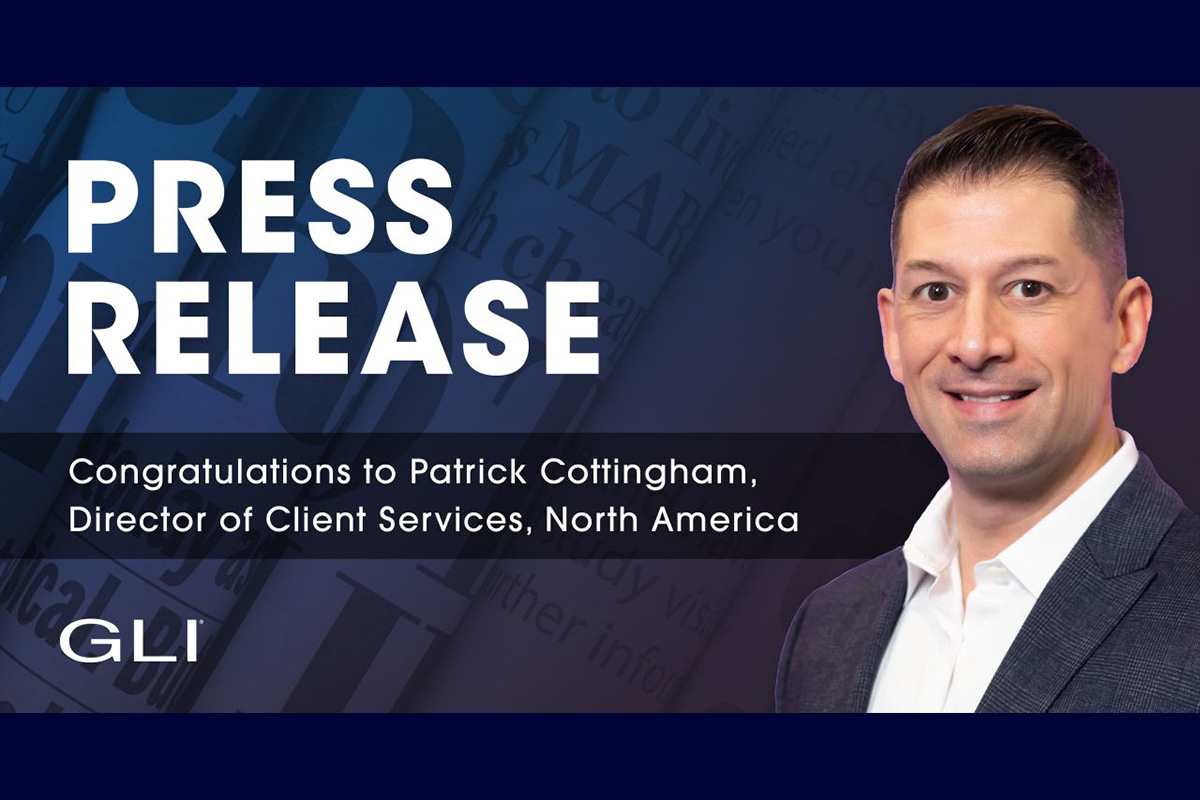
Gaming Laboratories International (GLI) has promoted Patrick Cottingham to Director of Client Services, North America. Previously, he served as Senior Manager of Client Services. Prior to commencing his career as an engineer with GLI, he served with the US Air Force.
Cottingham’s dedication to his clients was clearly evident both inside and outside of GLI. He transitioned to the Client Services team where he progressed and built a team laser focused on providing the very best customer service where his and his team’s clients have benefited from his engineering and gaming experience.
Ian Hughes, GLI Chief Revenue Officer, said: “We are thrilled to announce Patrick’s well-deserved promotion to Director of Client Services for North America. Patrick leads a team of dedicated and committed client services representatives who ensure our clients receive the best service during their compliance journey with GLI.”
The post GLI Promotes Patrick Cottingham to Director of Client Services, North America appeared first on Americas iGaming & Sports Betting News.
Blueprintx
Zingo Bingo Launches “Your Era” Nostalgia Series Featuring Kerry Katona and Pat Sharp

Zingo Bingo Launches “Your Era” – A Social-First Nostalgia Series for 2026
Zingo Bingo has officially unveiled Your Era, a new short-form social media content series celebrating iconic throwbacks, shared nostalgia and the cultural moments that defined generations. The series launches in February 2026 and will roll out weekly across TikTok, Instagram, Facebook and YouTube.
Designed to strengthen Zingo Bingo’s identity as a home of nostalgic fun, Your Era focuses on authentic conversation rather than traditional promotional content. The format highlights music, fashion, technology and pop culture milestones that shaped each guest’s personal journey.
Kerry Katona and Pat Sharp Headline Series One
The first confirmed guests include Kerry Katona, singer and media personality best known from Atomic Kitten, and Pat Sharp, the iconic radio and TV presenter associated with classic UK entertainment shows. Additional celebrity names will be revealed throughout the year.
Each episode features five themed nostalgia segments crafted to spark memories, conversation and emotional connections among viewers.
What to Expect from “Your Era”
Every guest takes part in recurring throwback features designed to boost engagement and relatability:
- The Memory Bag – Guests reveal five nostalgic items and share the stories behind them
- Flashback Files – A rapid-fire interview covering music, fashion, tech and cultural trends
- Mixtape Memories – Guests curate throwback tracks for the official Your Era playlist
- Taste of the Past – Sampling retro sweets and snacks while rating nostalgia levels
- Yesterday’s News – A humorous headline-guessing game using real throwback media stories
The series aims to tap into the growing popularity of nostalgia-driven digital content while positioning Zingo Bingo as a community-led entertainment brand.
Built by Kinetic Digital and Blueprintx
Your Era has been developed by Zingo Bingo’s operators, Kinetic Digital, in collaboration with long-term creative partner Blueprintx. Blueprintx has previously supported digital and television campaigns for Kinetic Digital brands including Prime Casino and Slingo.
The production strategy prioritises shareable, short-form content optimised for social discovery and influencer amplification, with episodes distributed across dedicated platform pages as well as guest channels.
A Strategic Play for Community Engagement
Jack Watson, Brand Manager at Zingo Bingo, said the series reflects the brand’s commitment to fun, familiarity and connection.
“Your Era is about celebrating the music we replayed, the fads we cringe at and the memories that still make us smile. It’s designed to bring people together through shared nostalgia while reminding audiences that bingo is about enjoying those moments collectively.”
Series one will feature six guests throughout 2026, with new weekly segments designed to drive audience engagement and repeat viewership.
The post Zingo Bingo Launches “Your Era” Nostalgia Series Featuring Kerry Katona and Pat Sharp appeared first on Eastern European Gaming | Global iGaming & Tech Intelligence Hub.
-

 ACMA5 days ago
ACMA5 days agoACMA Blocks More Illegal Online Gambling Websites
-

 Aurimas Šilys5 days ago
Aurimas Šilys5 days agoREEVO Partners with Betsson Lithuania
-

 CEO of GGBET UA Serhii Mishchenko5 days ago
CEO of GGBET UA Serhii Mishchenko5 days agoGGBET UA kicks off the “Keep it GG” promotional campaign
-

 Canada4 days ago
Canada4 days agoRivalry Corp. Announces Significant Reduction in Operations and Evaluation of Strategic Alternatives
-

 Latest News4 days ago
Latest News4 days agoTRUEiGTECH Unveils Enterprise-Grade Prediction Market Platform for Operators
-

 Central Europe5 days ago
Central Europe5 days agoNOVOMATIC Once Again Recognised as an “Austrian Leading Company”
-

 Acquisitions/Merger4 days ago
Acquisitions/Merger4 days agoBoonuspart Acquires Kasiino-boonus to Strengthen its Position in the Estonian iGaming Market
-

 Firecracker Frenzy™ Money Toad™4 days ago
Firecracker Frenzy™ Money Toad™4 days agoAncient fortune explodes to life in Greentube’s Firecracker Frenzy™: Money Toad™



